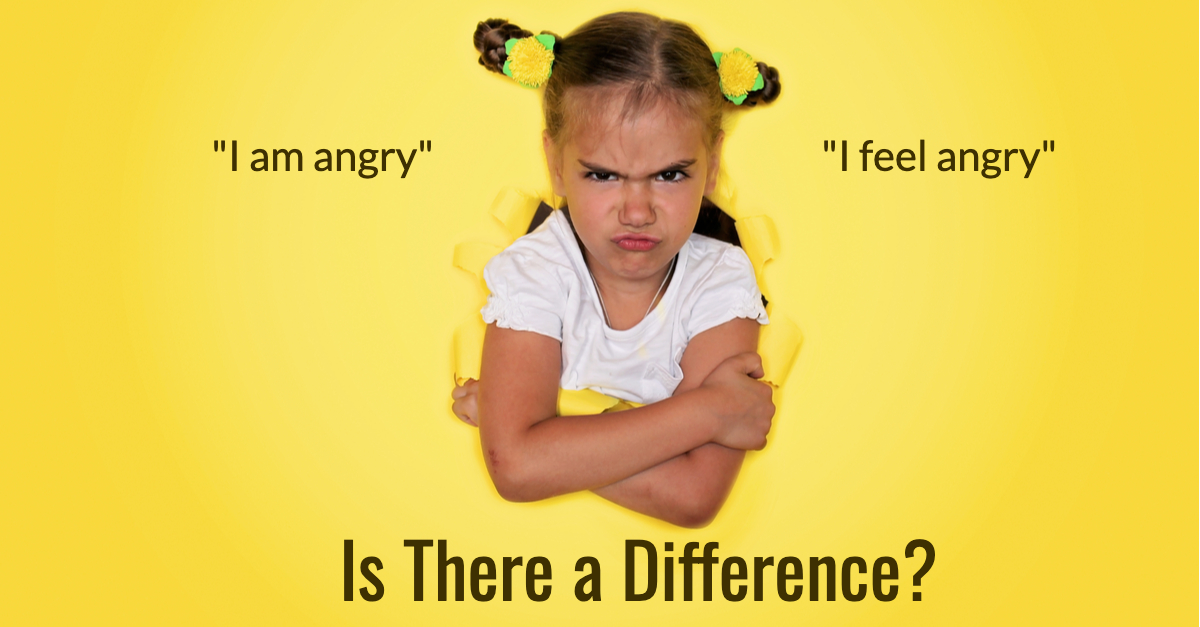“I am angry,” I exclaimed to my father.
“Hi! Nice to meet you, Angry. My name is Bob.”
In his annoying effort to correct my use of the English language, he was teaching me a significant lesson; we are not our emotions.
All emotions are nouns and sometimes used as verbs or adjectives. Our teachers taught us that a noun is a person, place, or thing. That “thing” can be either a concrete noun(something that involves the five senses: touch, taste, see, hear, smell) or an abstract noun(an idea, experience, state of being, trait, quality, feeling, or anything that can’t be experienced with the five senses).
Why does it matter?
Say out loud, “I am angry.”
This sentence is using an emotion word as a concrete noun. When you say “I am,” you are creating a definition of yourself. I am a woman. I am a human. I am tall. I am angry. It doesn’t sound right when you put it in this context.
This is how your brain identifies you — angry. My friend Cameron always quotes her mother, who said:
“Your brain doesn’t have a sense of humor.”
The brain takes in information like a computer. Try to ask Siri a joke and see what happens. When you say “I am,” your brain believes you.
Now say, “I feel angry.”
It feels different, and our brain processes it differently. Your emotions do not define you. Anger is what you are temporarily experiencing, and it is within your ability to change it, unlike your height or humanity.
Kyerston, a blogger, shared the benefits she discovered after making this small change to her daily use of words.
I would feel an emotion. I would say, out loud, how I felt. I feel angry. I feel sad. I feel frustrated. I feel anxious. I feel happy. I feel excited. I feel nervous. Immediately after those words were in the air, I recognized that the feeling is a feeling. This greatly reduced the power of the emotion. I felt a sense of detachment towards it. This has been true especially with negative emotions. Perhaps that it because they are more powerful, or perhaps it is because to me they are more powerful. As a general rule, my feelings and emotions are like a runaway train inside my head and heart and I have a hard time feeling in control. In this way, by saying that they are feelings in three short words, I take back control over them.
To get you started, you can always pull a “Bob Korte” and point out this “grammar don’t” to other people. It is so much easier to catch it in others at first, and then you begin to notice it in yourself. Of course, I suggest you limit it to family and close friends who are more accepting of being called out, and who will be equally happy to provide a reciprocal callout for you.
There is physical harm that comes from experiencing negative emotions, such as anger, stress, frustration, and sadness. It is comforting to know you can lessen its power by exchanging one word in a sentence.


